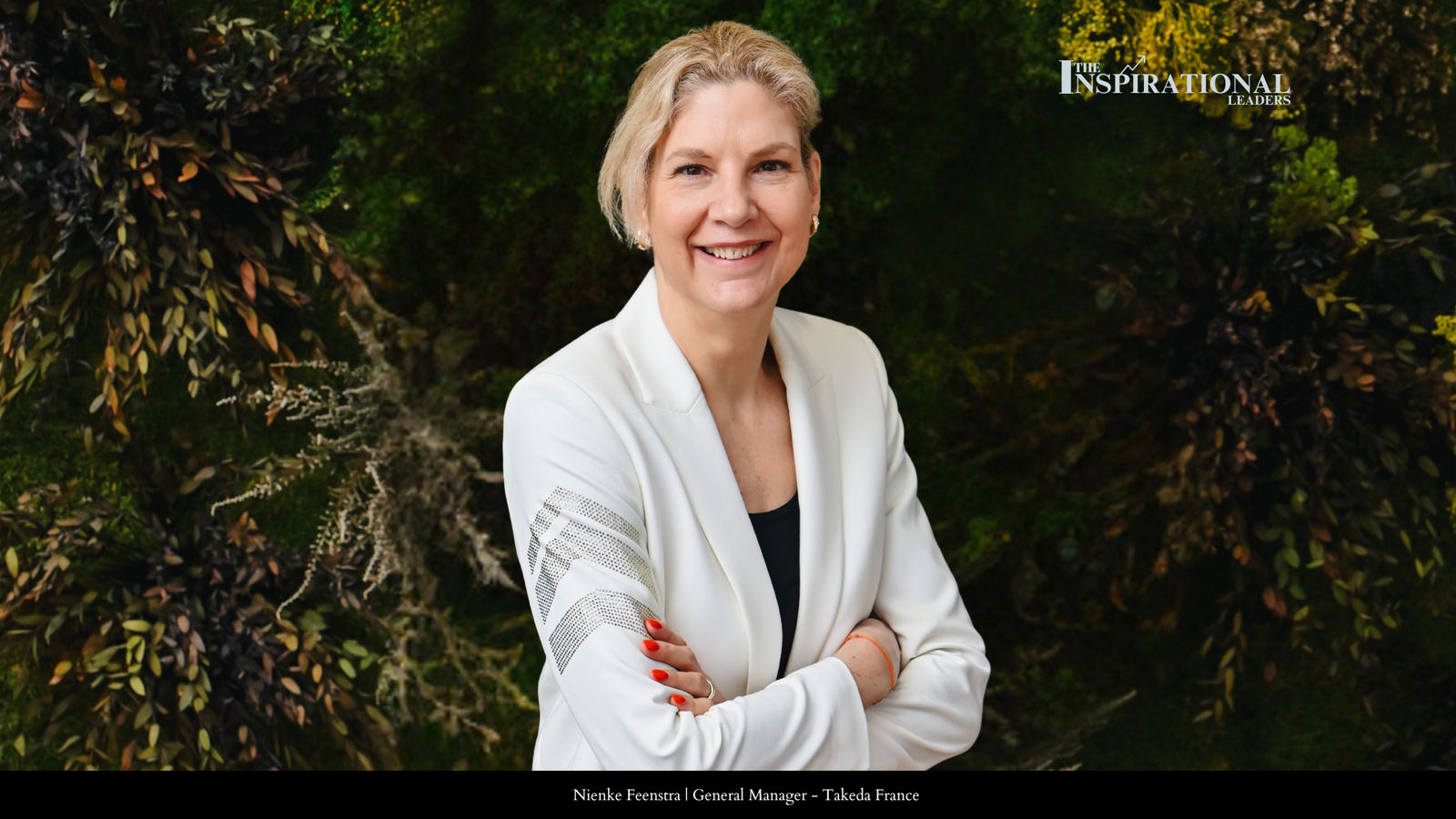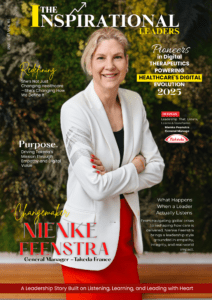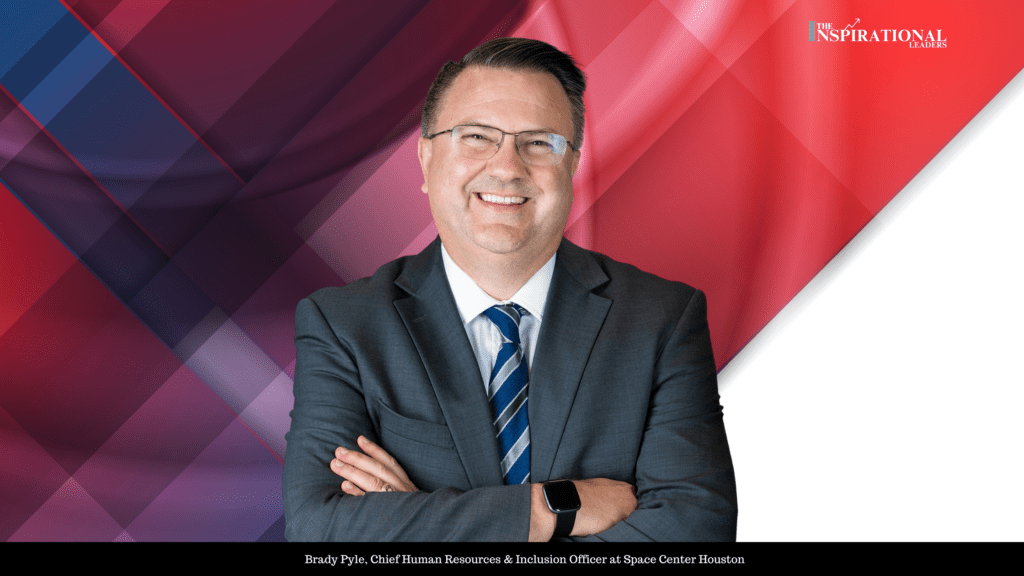In today’s rapidly transforming healthcare ecosystem, the intersection of digital innovation and human care defines the path forward. For Nienke Feenstra, General Manager at Takeda France, this is not just a professional frontier — it’s a personal mission. With a deep-rooted belief in patient-centered value, her leadership is helping Takeda France rethink what meaningful impact looks like in the age of digital therapeutics.
Her story is one of resilience, empathy, curiosity, and continuous transformation — a journey that illuminates the challenges and immense possibilities of digitizing healthcare with integrity and purpose.
Healthcare is not simply about treating illness—it’s about understanding lives, listening without assumption, and building solutions that truly matter to people. Technology can enhance that mission, but it is empathy, purpose, and collaboration that give it meaning. My vision is to lead in a way that connects innovation with humanity, ensuring that every decision we make moves us closer to care that is personal, predictive, and accessible for all.
Leadership Built on Human Experience and Global Perspective
Few leaders can claim a portfolio of leadership experiences as rich and multifaceted as Nienke’s. Across countries, business units, and crisis situations, her professional journey has been shaped by an uncommon willingness to step into the unknown.
She vividly recalls one of her earliest leadership roles — building a new department with limited structure or precedent. “There was no roadmap. I had to motivate, mobilize, and create a vision from scratch,” she explains. “I learned to lead by listening, by influencing without authority, and by showing up consistently.”
From that moment on, her leadership development became an ongoing, evolving experience. Working abroad was a key turning point. She embraced the challenges of cultural differences, language barriers, and varied leadership expectations. “You quickly come to understand that leadership must be adapted to context,” she explains. “What works well in one country might fall flat in another. The key is listening — deeply and often, adapting to complexity and fully accepting that uncertainty is part of the job.”
Perhaps the most profound lessons came during her time in Poland, where she guided her team through a trifecta of challenges: a corporate integration, the COVID-19 pandemic, and the humanitarian fallout from the war in Ukraine. “There is no training manual for that kind of leadership,” she reflects. “You’re called upon to be calm, clear, courageous — and above all, human.”
These experiences did more than refine her leadership skills; they grounded her in a purpose that now informs every decision: putting patients first and helping others rise, even in the face of adversity.
Living a Purpose that Goes Beyond Strategy
Nienke’s career has always been guided by a deep personal mission — one born from early exposure to real-world healthcare systems and unmet needs. During her university years, she conducted field interviews with patients and healthcare professionals. It was a defining experience.
“I realized then that the value of healthcare isn’t defined by systems or technology—it’s defined by the person receiving care,” she explains. “Since then, that lesson has shaped my approach.”
She has carried that mission through every stage of her career. Whether leading teams, designing strategy, or engaging with external stakeholders, she remains anchored in a simple yet powerful belief: value in healthcare must be defined by patients and delivered sustainably.
This is one of the key reasons she found alignment with Takeda France, a company rooted in the values of integrity, fairness, transparency, and perseverance. “We’re not just a pharmaceutical company. We’re a purpose-driven organization committed to improving lives through science and innovation that matter to patients.”
For Nienke, this alignment is not just ideological—it’s practical. It shapes how she hires, builds teams, allocates resources, and evaluates success. “You can’t deliver long-term results in healthcare without a purpose that transcends profit. You need values that guide every decision, especially when the path is complex.”
Digital Transformation as a Human Imperative
Over the past ten years, the healthcare industry has undergone a significant surge in digital innovation. While many view this evolution through the lens of tools and technologies, Nienke approaches it differently. She views digital transformation as a facilitator, not the final objective. And the goal is better care.
“What excites me about digital therapeutics isn’t the technology itself,” she says. “It’s the potential to finally deliver care that’s truly personalized, measurable, and aligned with what patients value.”
Her mindset toward digital innovation is rooted in curiosity. She dedicates time each week to learning about emerging technologies, startups, behavioral science, and digital health trends. She’s an active mentor and reverse mentee—believing that younger generations often have the clearest vision for what’s possible in the digital space.
“It’s not about having the answers—it’s about asking better questions,” she says. “Digital transformation begins when we stop assuming and start listening, experimenting, and learning with humility.”
Takeda France’s Digital Vision: Building Partnerships for True Value
A cornerstone of Nienke’s work at Takeda France has been the creation and scaling of the Value-Based Partnership (VBP) department—a team focused on co-creating solutions with stakeholders to recognize and reward the value that matters most to patients.
“This is not just about pricing or access. It’s about designing care pathways that work—for patients, payers, and healthcare providers alike,” she explains.
Takeda France’s Value-Based Partnerships (VBP) team collaborates across departments and with external partners to identify clear outcomes, collect real-world evidence, and develop digital solutions aimed at enhancing patient care. Their work doesn’t happen in isolation—it’s deeply connected to patient associations, hospital systems, and policy experts.
“Our ambition is to shape a system where outcomes-based models are not the exception, but the norm,” Nienke says. “And we can only do that if we build trust, transparency, and mutual accountability.”
Flagship Initiatives Turning Vision Into Impact
Among the many initiatives championed under Nienke’s leadership, two stand out for their innovation and patient relevance:
- myPKFiT: This digital tool supports individualized treatment for people living with hemophilia. By incorporating pharmacokinetic data, it enables clinicians and patients to co-create treatment plans tailored to the person’s body and lifestyle. “It puts decision-making power in the hands of the people who live with the condition every day,” Nienke explains. “It’s data turned into empowerment.”
- Aurora: We are leading an ongoing initiative to better support people living with chronic neurological conditions—beyond symptom control. Co-developed with patients, this approach focuses on symptom monitoring and treatment adjustment, personal goal setting, and access to tailored support resources. “Living with a neurological condition impacts far more than clinical symptoms,” she explains. “This work is about helping people feel understood—not just treated.
These tools are emblematic of a broader transformation: one where patient experiences are captured, valued, and used to enhance care—not just in theory, but in practice.
Leadership is not about authority—it’s about listening deeply, adapting to complexity, and showing up with consistency.
Embedding Patient Outcomes Into Takeda France’s Core
One of Nienke’s proudest accomplishments is helping make patient-centered thinking a company-wide norm rather than a niche. At Takeda France, every department, from finance to field operations, is encouraged to consider how their work improves patient outcomes.
“You’ll see it in how we design our offices, how we host town halls, how we celebrate team success,” she says. “The patient isn’t a department—they’re the reason we exist.”
That internal culture has a ripple effect externally. It fosters more honest partnerships, clearer conversations with regulators, and more sustainable innovation.
Redefining Innovation in a Regulated Environment
One of the consistent challenges in digital health is navigating regulatory frameworks and fragmented healthcare ecosystems. Innovation often outpaces policy, creating friction.
Nienke sees this tension as a creative constraint rather than a roadblock. “The healthcare system isn’t broken. It’s just evolving,” she explains. “Instead of fighting regulation, we need to understand it—and collaborate to evolve it together.”
She believes innovation in healthcare must move at the speed of trust. That means building bridges between industry, academia, policymakers, and patient communities. “We need to align on shared goals—not just technological possibilities.”
The Power of Listening to the Next Generation
In an era of rapidly shifting expectations, one of Nienke’s biggest sources of inspiration is the emerging generation of healthcare professionals and digital natives. She credits reverse mentoring with opening her eyes to new ways of working, thinking, and leading.
“The next generation doesn’t separate digital from healthcare—it’s just how they live,” she says. “That mindset is what will drive true transformation.”
Nienke sees it as her responsibility to create space for those voices—to learn from them, champion them, and help them lead.
A Commitment to Equity, Access, and Inclusion
Digital innovation can create access—but it can also widen disparities if not designed inclusively. Nienke is acutely aware of this risk.
“That’s why co-creation is critical. We must include underserved communities, marginalized patients, and diverse stakeholders in every step,” she says.
For her, equity isn’t a box to check. It’s a lens through which all innovation must be evaluated.
Looking Ahead: A Vision Rooted in Integration and Impact
As she looks to the future, Nienke envisions a healthcare system where digital therapeutics are seamlessly integrated into clinical practice, where outcomes are measured based on what truly matters to patients, and where care is not only personalized but also predictive and preventative.
“I hope to see a world where digital health tools aren’t viewed as separate or optional—but as core elements of care,” she says. “And I want to be part of building that world—not just for today’s patients, but for the next generation.”
Her ultimate goal? To leave a legacy of leadership that builds bridges across disciplines, inspires human-centered innovation, and never loses sight of the patient at the heart of it all.
Conclusion: Where Technology Meets Compassion
In the fast-evolving world of healthcare, it’s easy to get swept up in buzzwords and platforms. But leaders like Nienke Feenstra remind us that true transformation begins with purpose—and ends with people.
Her journey through different cultures, crises, and career stages has forged a leadership style rooted in empathy, guided by data, and powered by innovation. She’s not just helping Takeda France lead in digital therapeutics—she’s helping healthcare become more human, one initiative at a time.
And in doing so, she sets a powerful example of what it means to lead with vision, courage, and heart.




